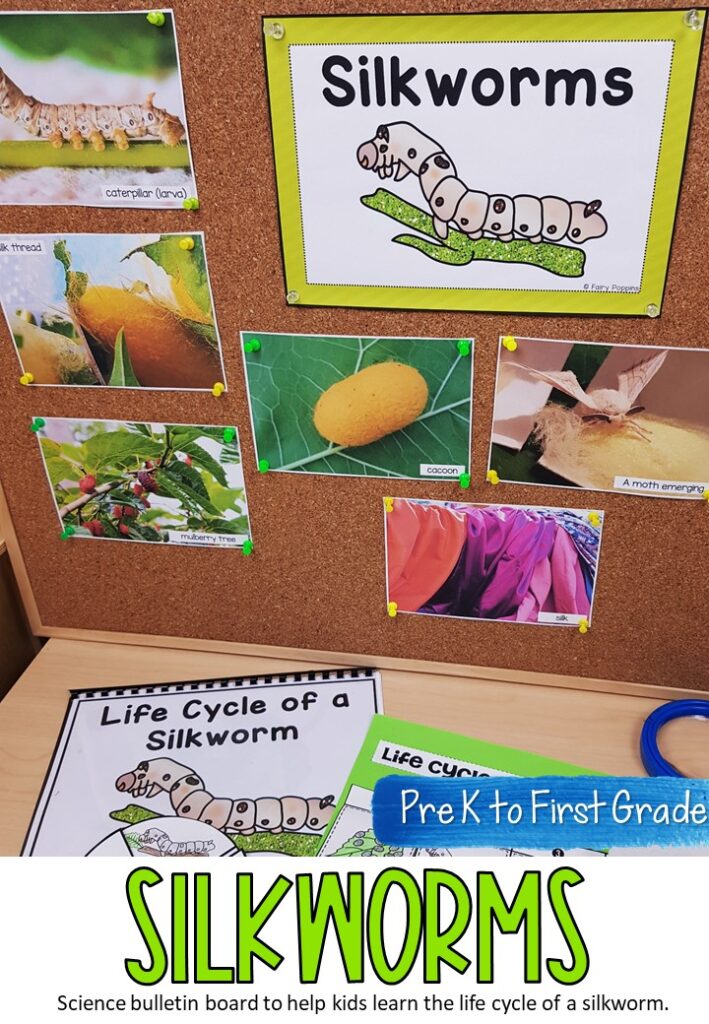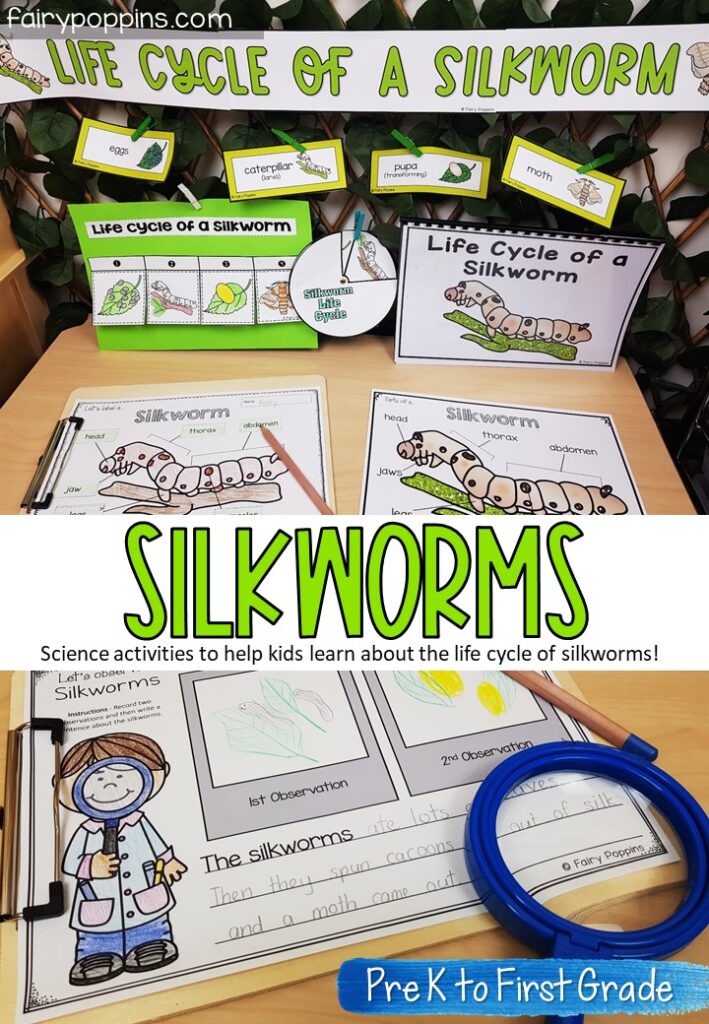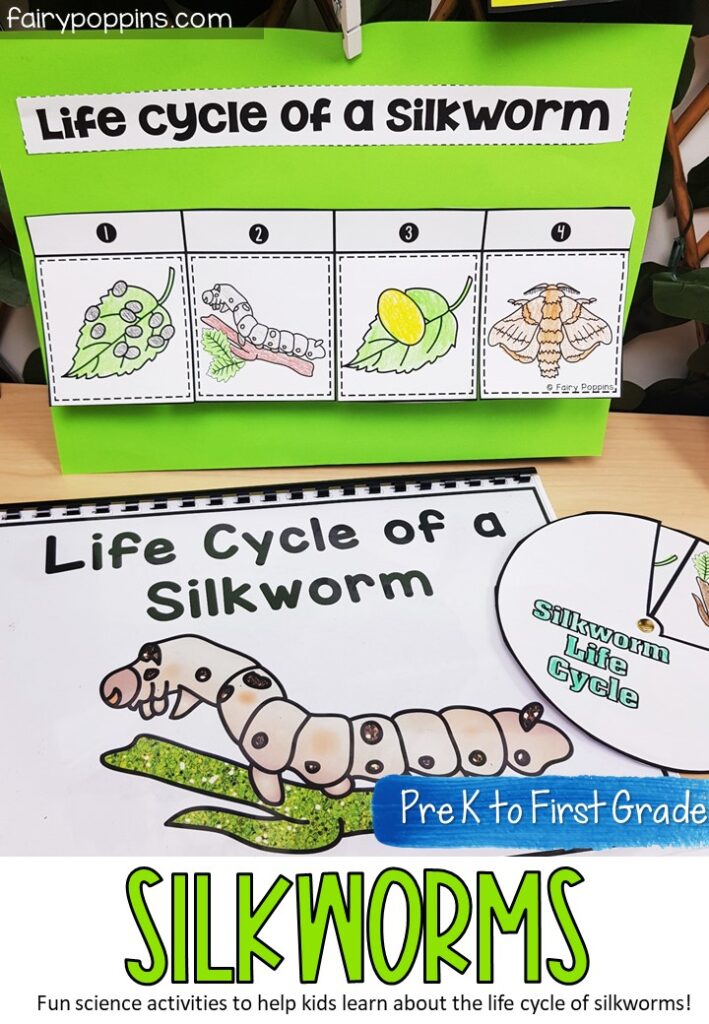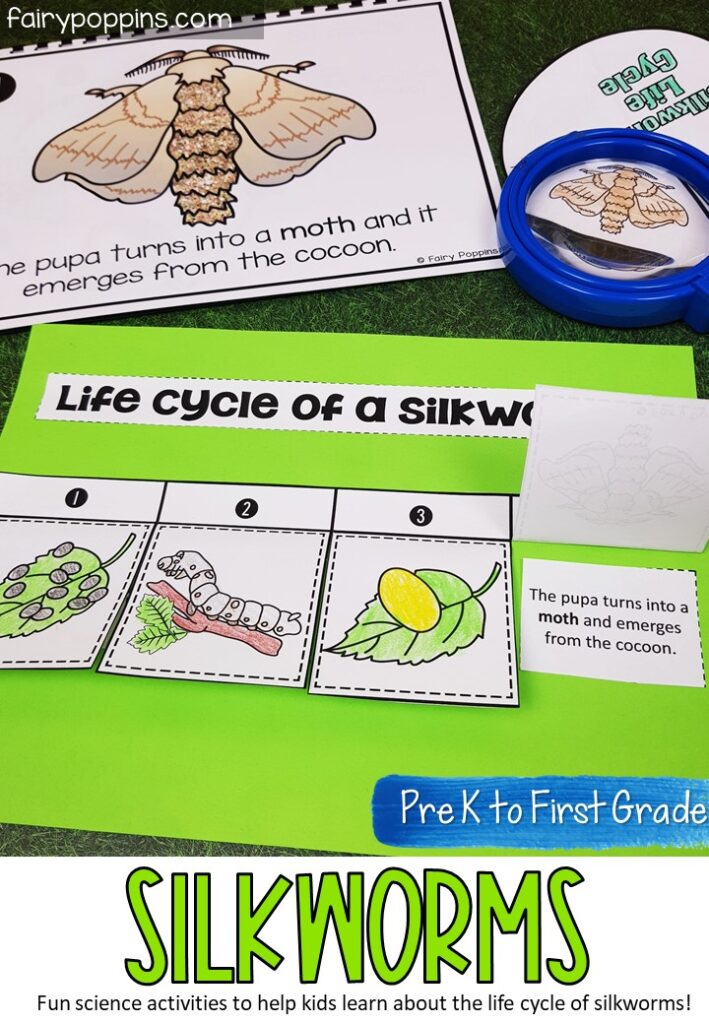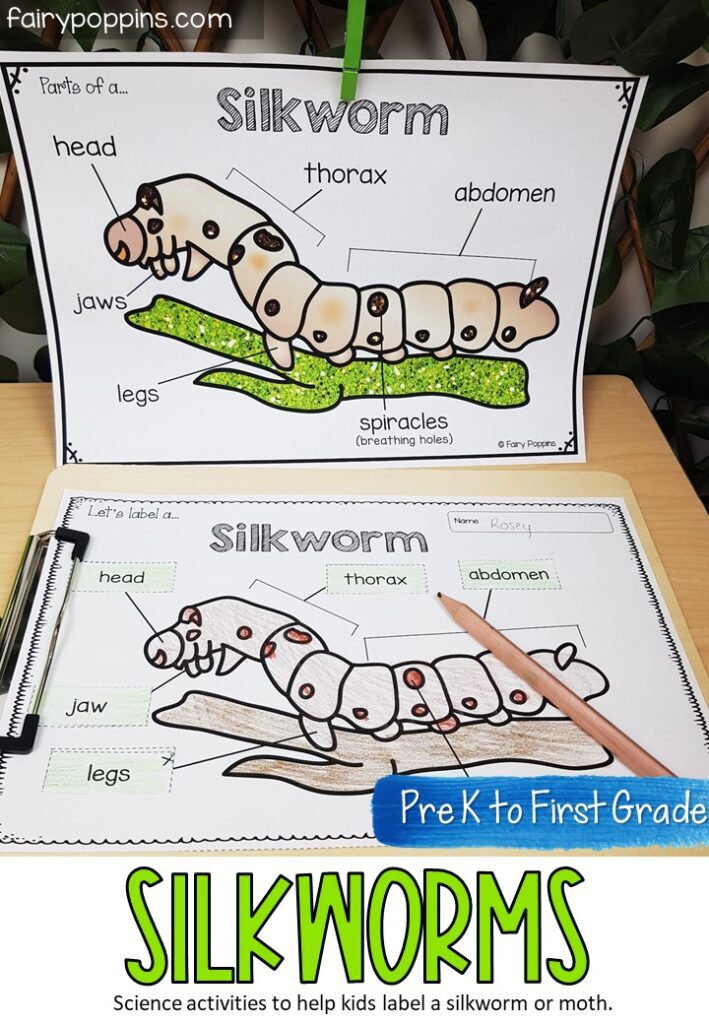Silkworms – Life Cycle Activities
These silkworm science activities help kids learn about the life cycle of a silk moth. They’re a great addition to science centers in Pre-K up to First Grade.
A few years ago, I studied silkworms with the kids in my class and they loved it! It’s a really fascinating process to watch the silkworms turn from caterpillars into silk moths. I’ve been meaning to create some silkworm life cycle activities ever since. I had a hard time finding suitable resources a few years back, so hopefully these will help!
Science Center Resources
Ah how I love to create bulletin boards! The following bulletin board is an engaging way to introduce kids to the life cycle of a silkworm. I’ve included real photos along with signs, labels and banners. So you can set up your science center like a pro. 😉
Silkworm Science Center
I recently found this artificial ivy trellis from Kmart (Australia), which makes a really awesome backdrop for science centers. Below is an example of how you can set up a display to teach kids about silkworms. I created a banner and then put some labels in order below. Then I used a binder to create a class book which details each stage of the life cycle. It’s useful to read to students when you’re introducing the topic.
Science Observation Activities
I made a variety of observation activities that kids can use to record their observations of the silkworms or silk moths. The kids can either draw or write their observations.
Life Cycle Activities
There are a variety of different silkworm life cycle activities, so they can be adapted to multiple year levels. The life cycle wheel is fun for younger students and older students will have fun with the interactive notebook activity. Kids can either paste the description below the flap or write it – I’ve included both variations.
Silkworm Life Cycle
Below are a few of the silk worm life cycle resources. There’s the class book, a life cycle wheel and an example of the interactive notebook activity up close.
Labeling Activities
Kids can label a silkworm or a moth. There is a reference poster included to help with the worksheet activity. I made it so it is not too complex, but still interesting for young learners. I was definitely interested to learn what a spiracle was.
You can learn more about the other activities here.
Grab the Silkworm Activities here.


